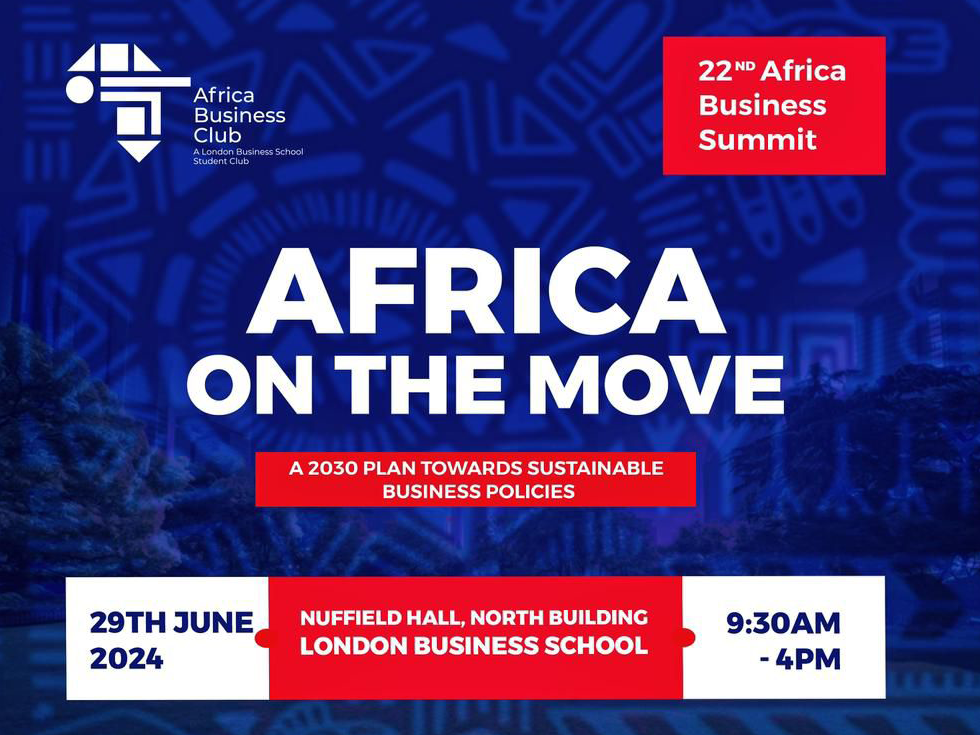
Register now for the 22nd LBS Africa Business Club Summit, taking place on Saturday 29th June.
We are delighted to support the Africa Business Summit, which has established itself as a leading forum in Europe for shaping an integrated and innovative perspective on Africa’s future. The Summit is a student-led initiative that attracts an audience of over 500 investors, policymakers, business leaders, professionals, diaspora, students, and alumni. Distinguished past speakers include His Excellency Nana Akufo-Addo of Ghana, Dr. Mo Ibrahim, Founder & Chair of Mo Ibrahim Foundation, Jingdong Hua, VP and Treasurer of IFC, the late Bob Collymore, former CEO of Safaricom Limited, Jay Ireland, President and CEO of GE Africa and Bob Diamond, Founder of Atlas Mara.
The theme of the 22nd Summit is Africa on the Move: A 2030 Plan Towards Sustainable Business Policies. While the world is yet to see Africa in its full glory, Africa remains a continent with incredible potential; however, it lacks policies and regulations to steward its abundance of talent and resources. The year 2030 represents a critical juncture where technological advancements, geopolitical shifts, sustainability goals, and demographic changes converge to redefine the global economy. This Summit will explore Africa’s readiness to achieve some of her crucial 2030 goals, particularly around business sustainability, by creating a platform for dialogue between policymakers and business leaders on how to foster mutually beneficial partnerships that serve all parties and the global economy at large.
